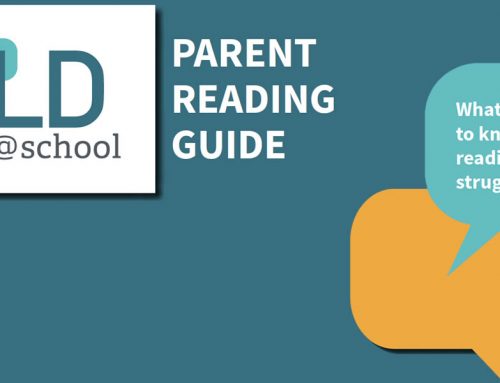by Amy Gorecki, OCT and Eve Dufour, M.Ed.
“Resilience (from the Latin resilire: “to bounce back”) refers to the capacity to return to good mental health after challenging and difficult situations. Some researchers define it as the return to normal (or better than normal) functioning after exposure to a high-risk experience (such as abuse, trauma or the death of a parent) or environment (such as poverty, systemic discrimination or a “bad neighbourhood”). Resilience allows individuals to manage difficult episodes or chronic challenges in their lives.” (Hurlington, 2010).
It is particularly important for youth with learning disabilities (LDs) to develop resilience to help them deal with the many challenges they encounter, often setting them apart from their peers and family members. Youth with LDs with great resilience are more likely to succeed, as they have the ability to bounce back when confronted with challenges or adversity.
There are things you can do with your child to develop their resilience and overall self-esteem:
- Help your child succeed outside of the classroom to build their confidence. Encourage them to participate in activities they enjoy and are good at (e.g. sports, arts, cooking, etc.).
- Encourage your child to set and achieve realistic goals based on their strengths. Setting achievable challenges can be quite motivational!
- Involve your child and allow them to see you advocating for their learning needs so they can learn to self-advocate as they mature.
- Use mistakes as learning opportunities. Everyone makes mistakes and rather than feeling ashamed, ask your child what they can learn from their mistakes and what they can do differently next time (The Integra Resource Centre, 2004).
- Help your child manage stress (Tough, 2012). Identify stressors in your child’s life, and more importantly, identify how they can return to a state of calm (e.g. drawing, exercising, singing, etc.) (Shanker, 2016).
- Help your child develop positive relationships with others. Having friends, a positive role model, and a supportive family can help children become more independent.
- Stay positive – focusing on the positive is extremely important and teaching children to develop a positive perspective, even when things are tough, can help them deal with difficult situations in a more productive manner.
References
American Psychological Association (2017). Resilience Guide for Parents & Teachers: 10 tips for building resilience in children and teens. Retrieved from: http://www.apa.org/helpcenter/resilience.aspx
Hurlington, K. (2010). Bolstering resilience in students: Teachers as protective factors. What Works? Research into Practice. Toronto: Ontario Ministry of Education.
Shanker, S. (2016). Self-Reg: How to Help Your Child (And You) Break the Stress Cycle and Successfully Engage With Life. Penguin Canada.
The Integra Resource Centre (2004). Tips for Parents: Developing resilience in children and youth with learning disabilities. Retrieved from http://www.integra.on.ca/Developing%20Resilience.pdf
Tough, P. (2012). How Children Succeed: Grit, Curiosity, and the Hidden Power of Character. Houghton Mifflin Harcourt.










